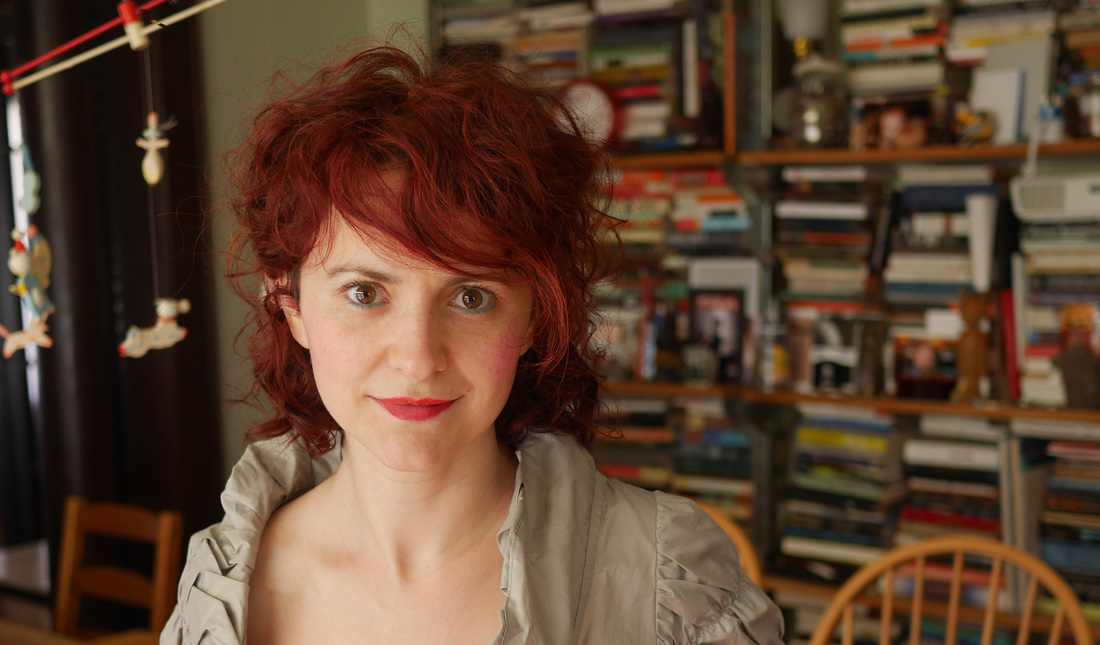|
6/6/2015 1 Comment How this Postdoc's wanderlust led her from studying philosophy in small town in Portugal to being a neuroscientist at Yale
By Heather Atkinson
Renata Batista-Brito, a Postdoctoral Fellow at the Yale School of Medicine, has been ascending the proverbial steps to science and self-discovery since childhood, with visions of determination and a poetic outlook on life. Currently part of the Jess Cardin lab where she uses in vivo electrophysiology to understand schizophrenia, Dr. Batista-Brito has a striking history in biochemistry and neuroscience, accompanied by a unique knowledge set gained from her educational wanderlust. Born in a small town in Portugal, Batista-Brito grew up surrounded by vine-covered farmland pierced by the banks of a south-flowing river. She says that she “was a happy little creature there but I always knew that as the river, I, too, would stream away into other lands.” As a result, she moved to Porto to pursue philosophy.
She soon realized, however, that it was time for a change. She said, “I was attracted by the immense and intimidating minds of the great thinkers of the past, but everyone around me was obsessed with turning philosophy into a hard science without having the proper methodology. It slowly occurred to me that perhaps it was no longer the time for philosophy, but the time for science – for neuroscience.” She completed her undergraduate studies in biochemistry at Porto University, but once again, a feeling of restlessness began to overcome her. She decided to leave Porto and “explore beyond the limits of my country.” This decision led her to France to complete her Master’s Degree at Paris VII University in the areas of biochemistry and molecular biology under the instruction of Harald Putzer. It was here that she “had for the first time the taste of being a scientist - butterflies in the stomach when you are about to understand something new, when you are forced to reformulate what you thought you knew or when you are constantly wrong and constantly seeking to be right.” She planted herself in foreign soil once more by traveling to New York University for her PhD program, where she began studying neuroscience under Gord Fishell, whose enthusiasm and knowledge were an immense inspiration. She worked primarily with interneurons, striving “to understand how the huge diversity of interneurons could possibly regulate the activity in the cortex and how such diversity was shaped during the development of the brain.” She then knew that the relationship between cortical networks and electrophysiology was the promising avenue down which she would drive into her postdoctoral career. She planned to return to Europe, claiming that she “missed the old stones, the smell and the ways of cities with long history, the European frankness and, of course, my family.” But something happened in the subway one day that altered this course. “I had a glorious conversation with a stranger in the L train, and two years later he would become my husband.” They talked about neuroscience, philosophy...scientific methods of discovery that Batista-Brito muses as “similar at the core” and strives to utilize daily because, to quote Socrates, “The unexamined life is not worth living.” It was this piece of happenstance that kept her on the East Coast of the United States, where she is now raising a baby boy with her husband. A desire to approach neuroscience from a systems perspective rather than the familiar molecular angle brought her to her current position in the Jess Cardin lab and the intriguing world of neuroscience - work fueled by deep passions, remarkable diligence and a healthy love of learning. Link to a video clip explaining her recent work to a broader audience is worth clicking. 
About the Author
Heather is an undergraduate student at the University of Utah earning her BA in linguistics and cognitive science with an interest in studying aphasia and other language properties of the brain. She has written articles for the online magazine NVate, and is currently a section editor for The Scientista Foundation's Scientista Spotlight. When she is not studying or writing in a cozy corner of her home, she is most likely away having an adventure in the beautiful mountain backgrounds of Utah. Comments? Leave them below!
1 Comment
|
SPOTLIGHTSMeet our Scientista Spotlights -- current-day women in STEM and women from science history -- and find your role model! Read opinion editorials and history pieces to get additional inspiration.
WHAT'S NEWYOU MIGHT ALSO LIKE
WHAT'S HOTCONNECT WITH USARCHIVES
June 2018
|
The Scientista Foundation, Inc. All Rights Reserved © 2011-2021 | Based in NY | [email protected]
The Network for Pre-Professional Women in Science and Engineering
The Scientista Foundation is a registered 501(c)(3) -- Donate!
The Network for Pre-Professional Women in Science and Engineering
The Scientista Foundation is a registered 501(c)(3) -- Donate!










 RSS Feed
RSS Feed